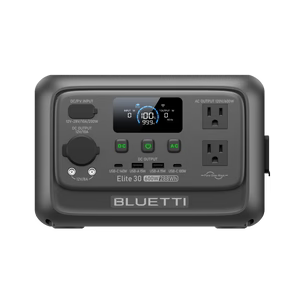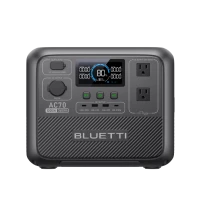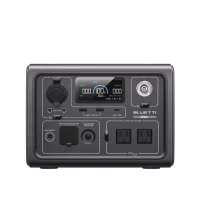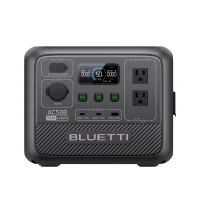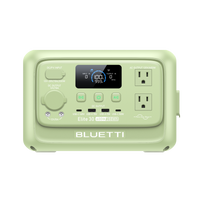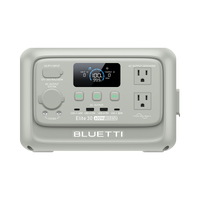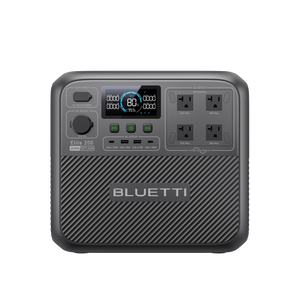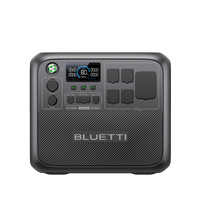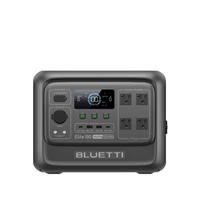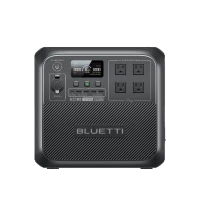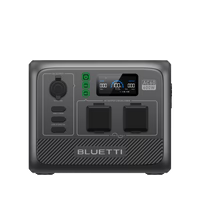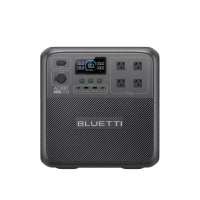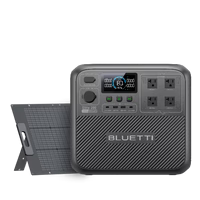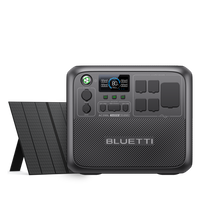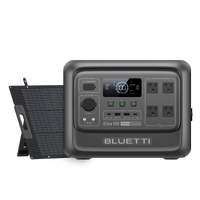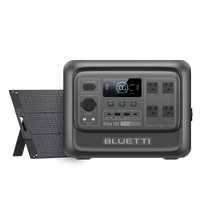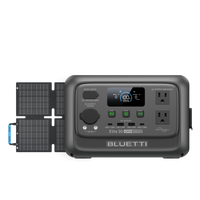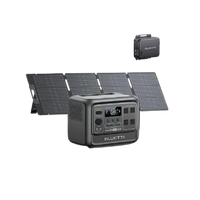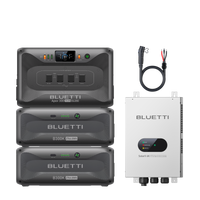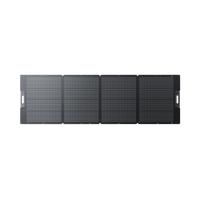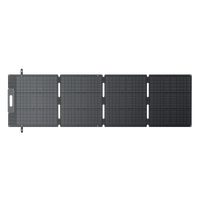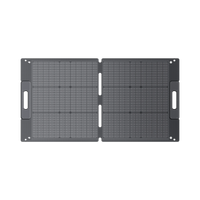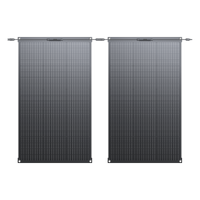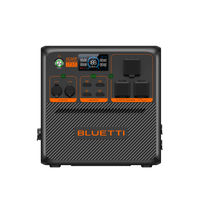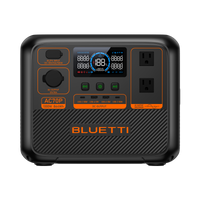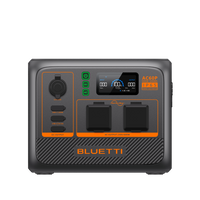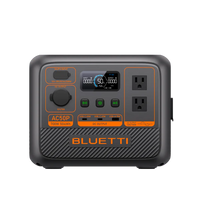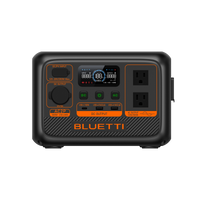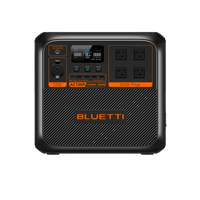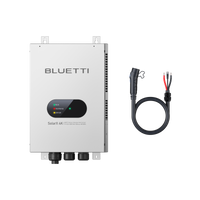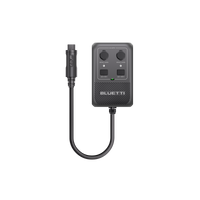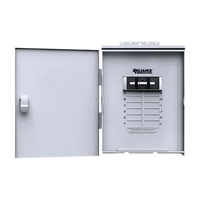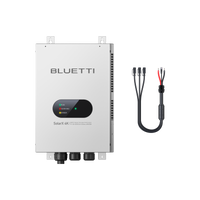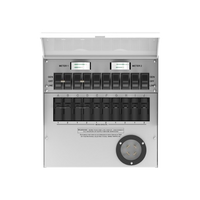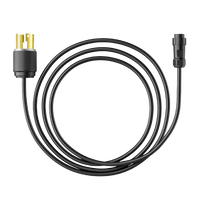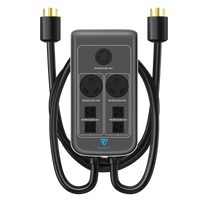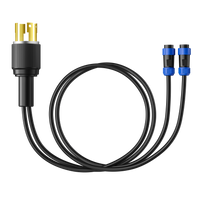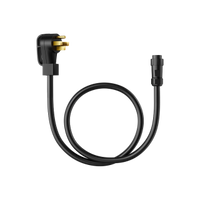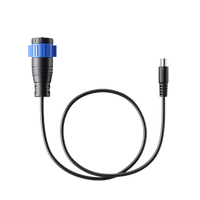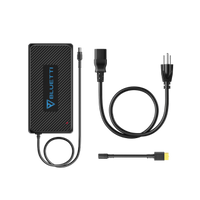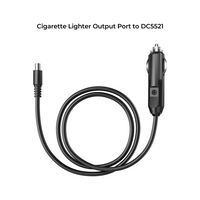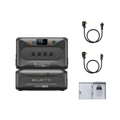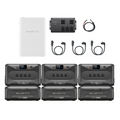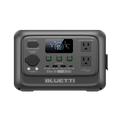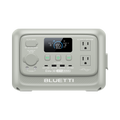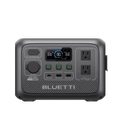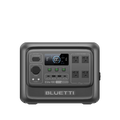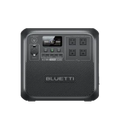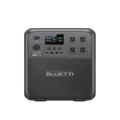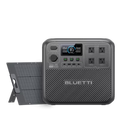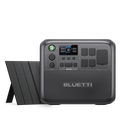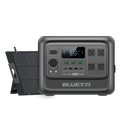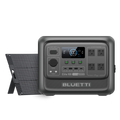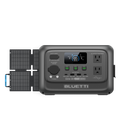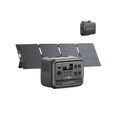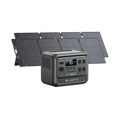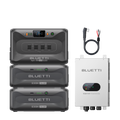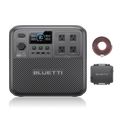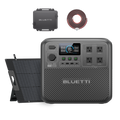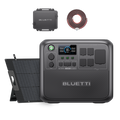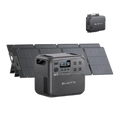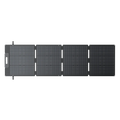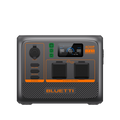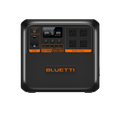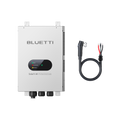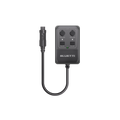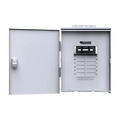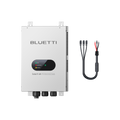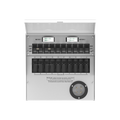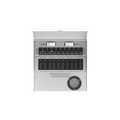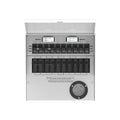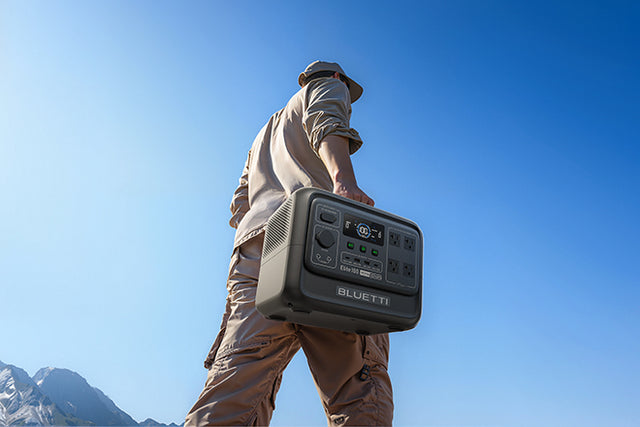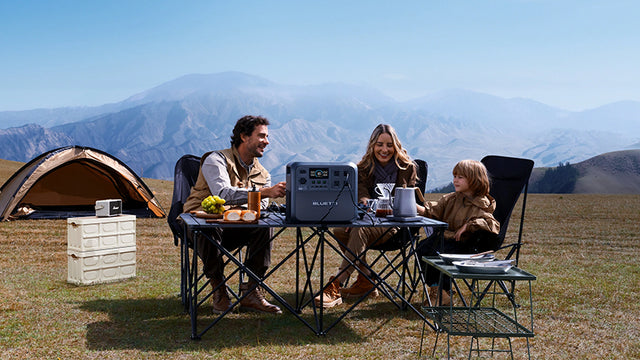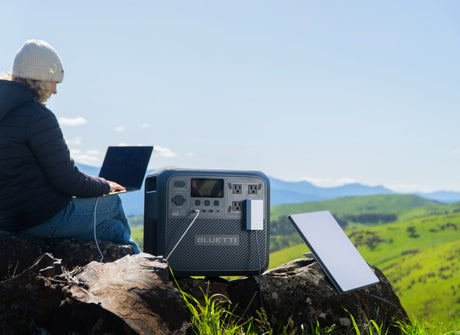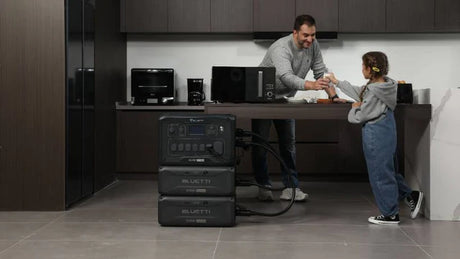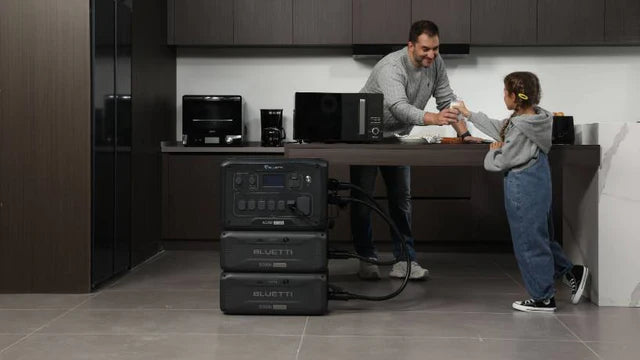Compte tenu de l'importance croissante accordée aux appareils numériques et aux travaux en ligne, il est devenu essentiel de garantir une alimentation électrique continue et sans interruption. En effet, une coupure de courant peut survenir à tout moment et n'importe où, ce qui perturberait votre travail et pourrait endommager vos appareils électroniques. Comment éviter ce genre de désagrément ?
L'un d'eux est un système d'alimentation sans coupure (UPS), qui fournit généralement une alimentation électrique de secours à vos appareils en cas de panne de courant. Il maintient vos appareils en marche pendant une courte période ou vous permet de les éteindre en toute sécurité.
Une autre solution consiste à utiliser une station d'alimentation portable (PPS) pour pallier les imprévus. Une PPS gère l'énergie grâce à une batterie mobile et alimente les appareils qui y sont connectés. Elle peut servir d'alimentation de secours ou, dans ce cas précis, constituer un système d'alimentation autonome et hors réseau.
Dans cette discussion, nous allons définir ces modèles, leurs différences et leurs similitudes, et vous conseiller sur celui qui conviendra le mieux à votre usage. Nous comparons deux des meilleurs modèles PPS disponibles chez BLUETTI.
À quoi sert un système d'alimentation sans interruption (UPS) ?
Ce système est un dispositif de protection des appareils électriques. Il leur fournit une alimentation de secours en cas de coupure de courant. Contrairement à un générateur, qui produit de l'énergie à partir d'une source d'énergie, les systèmes d'alimentation sans coupure (UPS) intègrent l'énergie sous forme de batteries, de supercondensateurs ou de volants d'inertie.
En cas de coupure de courant, un onduleur peut généralement basculer immédiatement sur l'alimentation de secours. Il permet de maintenir vos appareils en fonctionnement pendant une courte période ou de les éteindre correctement. Cela contribue à prévenir les pertes, les dommages ou les interruptions de service en cas de panne de courant.
La taille et la capacité d'un onduleur dépendent bien sûr de vos besoins en énergie et de leur durée d'utilisation. Certains modèles alimentent un seul ordinateur, tandis que d'autres peuvent prendre en charge plusieurs appareils. À très grande échelle, certains onduleurs peuvent alimenter un centre de données entier, voire un bâtiment. Le choix d'un onduleur doit respecter votre budget et répondre efficacement à vos besoins en énergie.
Combien d'heures dure un système d'alimentation sans interruption (ASI) ?

Les facteurs déterminants incluent la marque, le modèle, la qualité et l'utilisation de l'onduleur. En général, un onduleur standard a une durée de vie d'au moins 10 000 heures, soit environ 8 ans à raison de 8 heures de fonctionnement par jour. Cependant, certains onduleurs durent moins longtemps, tandis que d'autres ont une durée de vie supérieure, selon les conditions d'utilisation et l'entretien.
L'un des facteurs les plus déterminants de la durée de vie d'un onduleur est la batterie elle-même. Celle-ci constitue la réserve d'énergie et assure la capacité de distribution nécessaire au fonctionnement de l'unité de secours. Cette capacité est mesurée en VA (voltampères) ou en watts, afin de quantifier la puissance qu'elle peut fournir en cas de besoin. Plus la valeur est élevée, plus la durée de vie de la batterie est longue. Par exemple, une batterie d'onduleur standard de 350 à 1 600 watts peut durer environ 3 ans, tandis qu'une batterie de 2 000 à 2 500 watts peut offrir une durée de vie d'environ 6 ans. Certaines batteries d'onduleur haut de gamme peuvent même fonctionner pendant 10 ans, voire plus.
Le facteur suivant est l'autonomie en veille de votre onduleur. Cette autonomie détermine la durée pendant laquelle, en cas de coupure de courant, l'onduleur maintiendra vos appareils en fonctionnement grâce à l'alimentation de secours. Plus elle est longue, plus l'onduleur risque de s'user rapidement.Par exemple, si votre onduleur a une puissance de 1 000 watts et une autonomie en veille de 125 minutes, il peut fonctionner pendant environ 8 heures sans coupure de courant. Cependant, en cas de panne de courant de plus de 8 heures, il est fort probable que votre onduleur doive être remplacé.
Qu'est-ce qu'une centrale électrique portable ?

En d'autres termes, une station d'alimentation portable (SAP) est un dispositif de stockage et de distribution d'énergie. Elle peut notamment servir d'alimentation sans interruption (ASI), c'est-à-dire de source d'alimentation principale ou de secours. Elle est généralement équipée de ports CA, USB et CC pour alimenter et recharger divers appareils, selon leur capacité. Idéale pour le camping ou en cas d'urgence, comme une panne de courant, une SAP vous garantit une alimentation électrique même loin de toute source d'énergie.
Une batterie externe est très utile pour travailler dans les conditions les plus difficiles, notamment dans les secteurs de la construction et de la photographie qui nécessitent l'utilisation de nombreux outils électriques. Le type de batterie, la technologie et la conception influencent la taille, le poids et la capacité d'une batterie externe. Choisissez-en une compatible avec la fréquence de vos outils et vos besoins énergétiques quotidiens, surtout si la portabilité est un critère important.
Que peut faire une centrale électrique portable ?
C'est un excellent système de secours, un atout précieux pour vos aventures en camping et la meilleure option d'énergie renouvelable. Il réduit la dépendance au réseau électrique, remplace avantageusement les générateurs à essence et propose de nombreux accessoires pour augmenter la puissance des camping-cars. Il peut facilement servir de solution de secours lors de longs voyages en famille, d'équipement de survie dans n'importe quelle voiture, de moyen d'aménager un bureau en plein air, de studio de création pour tous vos créateurs de contenu et d'arme secrète pour des fêtes en plein air réussies. Que vous soyez confronté à une panne de courant à votre domicile, en camping ou en télétravail, une chose est sûre : le PPS vous garantit une alimentation électrique continue.
Principale différence entre un onduleur et une centrale électrique portable
Parmi les principales différences entre ces deux types d'onduleurs, on peut citer trois fonctionnalités : leur fonctionnement, leur portabilité et leur autonomie. En cas de coupure de courant, l'onduleur prend automatiquement le relais pour tous les appareils qui y sont connectés, assurant ainsi une alimentation continue. À l'inverse, les unités PPS fonctionnent manuellement et constituent une source d'énergie portable.
Bien qu'un onduleur (UPS) soit une source d'énergie de secours toujours disponible, un système d'alimentation sans coupure (PPS) peut servir de centrale principale ou de secours selon les besoins. La portabilité est un autre facteur important. Un onduleur est généralement un appareil fixe installé dans une maison ou un bureau. Quant au PPS, il doit évidemment être conçu pour être facilement transportable. L'onduleur est une source d'alimentation de secours temporaire, permettant de pallier les coupures de courant, tandis que le PPS assure une alimentation stable pendant des heures, des jours ou même des mois, ce qui est plus avantageux pour les applications hors réseau.
Puis-je utiliser une station d'alimentation portable comme onduleur ?
Oui, vous pouvez les utiliser comme onduleur. En général, ils sont conçus pour fournir de l'énergie lorsque le réseau électrique est instable ou inexistant. Ils sont équipés de batteries qui stockent l'énergie et peuvent alimenter les appareils connectés à la demande, une fonctionnalité typique d'un onduleur puisqu'il peut également fournir une alimentation de secours à une charge en cas de défaillance de la source d'alimentation principale ou du réseau électrique.
Recommandations :

Cette station offre une évolutivité totale, avec une capacité initiale de 2 048 Wh, extensible jusqu'à 4 096 Wh avec une batterie B230 ou jusqu'à 8 192 Wh avec deux batteries B300. Elle dispose d'une puissance de sortie CA de 2 400 W et d'un mode de charge de 3 600 W. L'AC200L peut être rechargée à 80 % en seulement 45 minutes avec une entrée CA de 2 400 W. Elle propose également six modes de recharge (CA/solaire/voiture/générateur/batterie au plomb/CA + solaire) pour une grande flexibilité d'utilisation. Enfin, vous pouvez surveiller et contrôler votre station d'alimentation via Bluetooth. &et le Wi-Fi avec l'application BLUETTI.

Cette station est extrêmement performante, grâce à sa batterie LiFePO4 de 5 120 Wh qui supporte plus de 3 500 cycles de charge/décharge à 80 % de sa capacité. Sa puissance de 3 000 W, à onde sinusoïdale pure, est idéale pour des applications telles que les systèmes d'alimentation sans coupure (UPS) connectés au réseau et les systèmes de stockage d'énergie autonomes. Elle peut alimenter simultanément de nombreux appareils et offre des options de recharge flexibles, garantissant ainsi une alimentation continue. Elle est également dotée d'une application de contrôle à distance et d'un écran tactile intelligent pour une utilisation simplifiée.
Réflexions finales
Ainsi, un onduleur (UPS) et un système d'alimentation sans coupure (PPS) sont deux dispositifs différents qui peuvent alimenter vos appareils en conditions normales. Un onduleur prend le relais en cas de coupure de courant. Un système d'alimentation sans coupure (PPS), quant à lui, est un appareil électrique qui stocke l'électricité ou se recharge grâce à une batterie afin de l'utiliser pour alimenter vos appareils.
Le choix dépend de vos besoins spécifiques et de vos préférences. Si votre objectif est de protéger votre équipement contre les perturbations électriques et d'assurer un arrêt propre, un onduleur (UPS) est préférable. Un système d'alimentation sans coupure (PPS) sera idéal pour une personne ayant besoin d'une alimentation portable et flexible pour une utilisation en extérieur, en cas d'urgence ou dans des conditions de travail difficiles.






